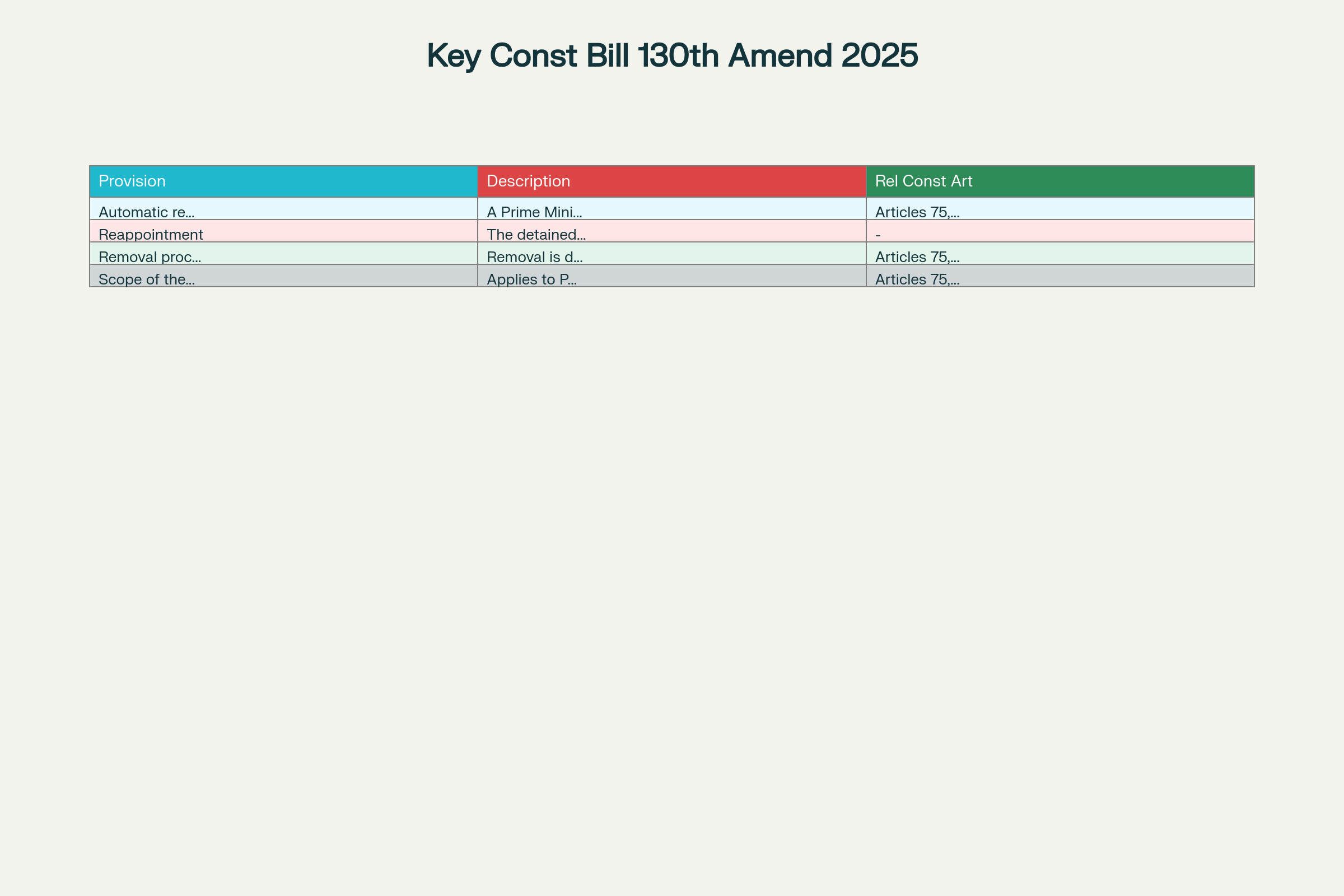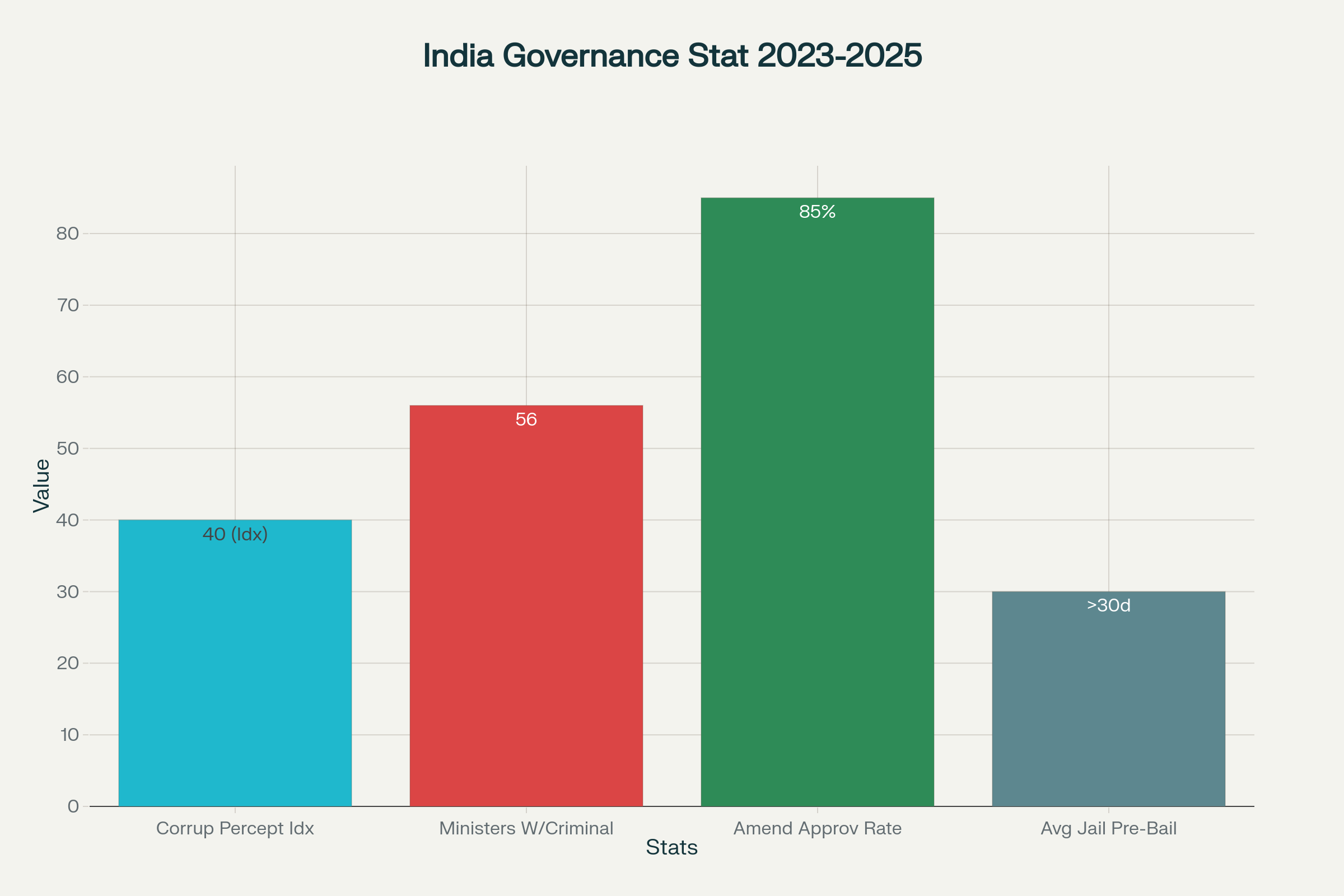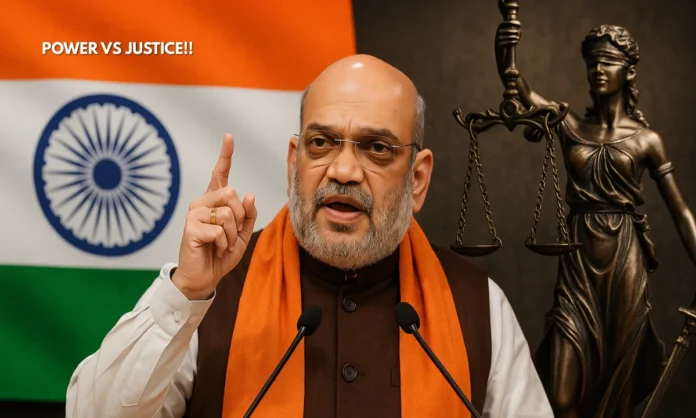Key Highlights:
- Union Home Minister Amit Shah introduces the Constitution Bill 2025 (130th Amendment) in Lok Sabha, mandating automatic removal of Prime Ministers, Chief Ministers, and Ministers detained for 30 days on serious criminal charges
- Three complementary bills target ministers across the Union, State, and Union Territory governments, aiming to address political corruption in Indian democracy
- Opposition parties protest the proposed legislation, alleging political motives to destabilize non-BJP governments while the government maintains it upholds constitutional morality
Opening Overview: Legal Framework Against Jailed Ministers
Union Home Minister Amit Shah’s recent statement on the Constitution Bill 2025 (130th Amendment) represents a significant shift in India’s approach to political accountability. The proposed constitutional amendment introduces an unprecedented legal mechanism targeting ministers who continue governance functions while facing serious criminal charges.
The legislation, introduced alongside two complementary bills in the Lok Sabha on August 20, 2025, aims to address a critical gap in India’s constitutional framework regarding the continuation of ministerial duties during legal proceedings. The Constitution Bill 2025 (130th Amendment) specifically targets situations where elected officials, including the Prime Minister, Chief Ministers, and Ministers, remain in custody for extended periods while maintaining their constitutional positions.
Shah emphasized that Prime Minister Narendra Modi has voluntarily included himself within the purview of the Constitution Bill 2025 (130th Amendment), contrasting it with historical precedents where leaders sought protection from judicial oversight. This move signals the government’s commitment to establishing uniform accountability standards across all levels of political leadership, irrespective of party affiliation or constitutional hierarchy.

No Conviction Needed, Amit Shah Bill to Let Governors Sack CM, Ministers After 30 Days in Jail https://t.co/z5pipPgrWs
— Siddharth (@svaradarajan) August 19, 2025
Comprehensive Legislative Framework for Ministerial Accountability
The Constitution Bill 2025 (130th Amendment) introduces a systematic approach to address ministerial accountability through three interconnected legislative measures. These bills collectively target different levels of governance, ensuring comprehensive coverage across Union, State, and Union Territory administrations.
- Constitutional Amendment Scope: The primary bill amends Articles 75, 164, and 239AA, establishing uniform standards for the Union Council of Ministers, State Councils of Ministers, and special provisions for Delhi
- Union Territory Coverage: The Government of Union Territories (Amendment) Bill, 2025 specifically addresses ministerial accountability in Puducherry
- Regional Application: The Jammu and Kashmir Reorganisation (Amendment) Bill, 2025 extends these provisions to the Union Territory of Jammu and Kashmir
The Constitution Bill 2025 (130th Amendment) establishes a clear 30-day threshold for automatic removal, applying to offences punishable with imprisonment for five years or more. This threshold balances the principles of judicial presumption of innocence with the practical requirements of effective governance, ensuring that serious criminal allegations do not compromise administrative functionality.
The automatic removal mechanism under the Constitution Bill 2025 (130th Amendment) operates through a structured process involving the President, Governors, and Lieutenant Governors, depending on the level of government. This systematic approach ensures constitutional compliance while maintaining clear lines of executive authority and responsibility.
Opposition Response and Political Implications
The introduction of the Constitution Bill 2025 (130th Amendment) has triggered intense parliamentary debates and opposition protests, with critics alleging political motivations behind the legislation. Opposition parties have characterized the proposed amendment as a “black bill” designed to destabilize non-BJP state governments rather than genuinely address corruption concerns.
Shah’s defense of the Constitution Bill 2025 (130th Amendment) emphasizes its universal application, noting that it includes the Prime Minister’s office within its scope. He contrasted this approach with the historical 39th Amendment introduced during Indira Gandhi’s tenure, which provided judicial immunity to specific constitutional positions rather than establishing accountability mechanisms.
The Joint Parliamentary Committee referral of the Constitution Bill 2025 (130th Amendment) demonstrates the government’s willingness to engage in detailed scrutiny of the proposed legislation. This procedural step allows for comprehensive examination of the bill’s provisions, potential constitutional implications, and alignment with democratic principles.
Opposition concerns regarding the Constitution Bill 2025 (130th Amendment) center on potential misuse for political vendetta and the disruption of federal governance structures. Critics argue that the 30-day detention threshold could be manipulated through prolonged legal proceedings, effectively removing political opponents from office without proper judicial determination of guilt.
Constitutional Precedents and Legal Framework Analysis
The Constitution Bill 2025 (130th Amendment) addresses longstanding gaps in India’s constitutional framework regarding ministerial accountability during criminal proceedings. Unlike existing provisions that focus on membership qualifications, the proposed amendment specifically targets the continuation of executive responsibilities during legal custody.
Historical precedents show limited constitutional mechanisms for addressing ministers facing serious criminal charges while in office. The Constitution Bill 2025 (130th Amendment) fills this legislative vacuum by establishing clear procedures for temporary removal and potential reappointment based on legal status changes.
The bill’s provision for reappointment upon release from custody demonstrates its focus on temporary administrative measures rather than permanent disqualification. This approach maintains electoral mandates while ensuring that serious criminal allegations do not compromise governmental functions.
Legal experts note that the Constitution Bill 2025 (130th Amendment) operates within existing constitutional principles while establishing new procedural safeguards. The requirement for presidential or gubernatorial involvement ensures appropriate constitutional authority in removal decisions, maintaining separation of powers while addressing practical governance concerns.

Final Perspective: Balancing Democratic Accountability and Governance Integrity
The Constitution Bill 2025 (130th Amendment) represents a significant evolution in India’s approach to political accountability, addressing the complex intersection of criminal justice and democratic governance. Shah’s emphasis on the bill’s universal application, including the Prime Minister’s office, demonstrates the government’s commitment to establishing consistent standards across all levels of political leadership.
The proposed amendment’s focus on serious criminal charges carrying five-year imprisonment terms ensures that the mechanism targets substantial legal concerns rather than minor procedural violations. This threshold approach balances democratic principles with practical governance requirements, addressing legitimate public concerns about ministerial accountability.
As the Constitution Bill 2025 (130th Amendment) proceeds through the Joint Parliamentary Committee process, its ultimate success will depend on achieving broader political consensus regarding the balance between individual rights and institutional integrity. The legislation’s impact on India’s democratic framework will likely influence future approaches to political accountability and constitutional governance.
The government’s positioning of the Constitution Bill 2025 (130th Amendment) as a measure against political corruption reflects broader national conversations about institutional reform and democratic transparency. Whether this legislative initiative achieves its stated objectives while maintaining constitutional balance remains a critical test for India’s evolving democratic institutions.


